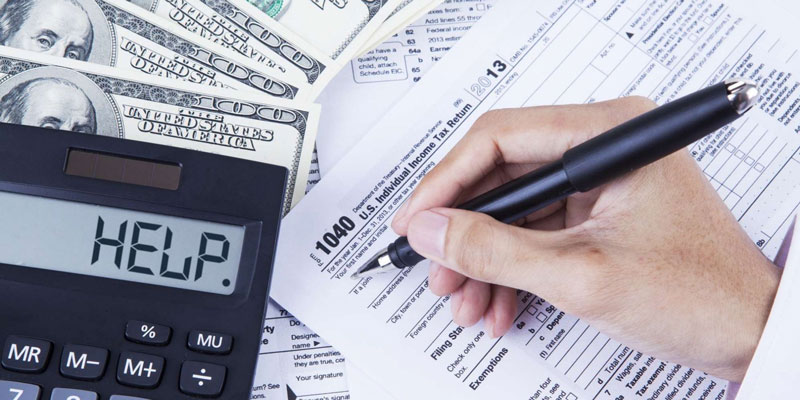Filing taxes can feel overwhelming, especially when you encounter forms and schedules that seem complicated. One such form is Schedule B (Form 1040), a critical document for individuals with certain types of income, specifically interest and ordinary dividends.

While this form may sound complex, understanding what it does and how it works should give you the confidence to tackle the tax process. Below, we take apart Schedule B (Form 1040), let you know when you might have to file it and explain where it fits into your overall tax return.
What Is Schedule B (Form 1040)?
Schedule B is an attachment to an IRS Form 1040 that reports interest and ordinary dividend income. A person is required to attach the form to the standard Form 1040 if they have income deriving from savings accounts, bonds, or dividend-yielding investments in the stock market. One needs to file this form if his total interest income is $1,500 or more or if he has specific foreign accounts or holdings.
The details provided in Schedule B ensure the IRS correctly assesses taxes on this income. While it isn't necessary for every taxpayer, it's important for those with significant interest or dividend earnings and foreign financial assets to file it properly to avoid penalties.
When Do You Need Schedule B?
You are not required to file Schedule B every time. There are moments when you will need to use it. The IRS requires you to use this form if your taxable interest or dividends are above specified limits. Here are some of the common scenarios when you are required to fill in Schedule B:
Interest Income Exceeds $1,500:
If your total taxable interest income is over $1,500 during the year, you will need to attach Schedule B to your tax return. This includes interest from bank accounts, bonds, and any other sources.
Ordinary Dividends Exceed $1,500:
Like interest income, if your dividends from stocks or mutual funds exceed $1,500, you must use Schedule B to report them.
Foreign Accounts:

If you have foreign bank accounts or other foreign financial assets, you may be required to file Schedule B, even if your income is under $1,500. This requirement stems from the need to report international financial accounts to the U.S. government in compliance with foreign asset reporting regulations.
Interest From Certain Sources:
If you receive interest from foreign investments or government obligations, you may be required to report this on Schedule B. This ensures that these forms of income are taxed correctly according to U.S. law.
In most cases, if your interest or dividend income is below these thresholds, you can report them directly on Form 1040 without the need for Schedule B.
Breaking Down the Key Components of Schedule B
Understanding the layout of Schedule B will help simplify your tax filing process. The form is divided into several sections, each addressing a different type of income or requirement.
Part I: Interest Income
In this section, you report the interest income you earned during the year. It is broken down into two columns: the first column for the name of the payer (such as your bank or bond issuer) and the second column for the amount of interest received. If you earned interest from multiple sources, youll need to list each source and its corresponding amount.
If you earned more than $1,500 in interest income, the form will also ask you to include specific details about the sources of this income. This includes not only the names of the institutions but also the account numbers for accounts that generated the income.
Part II: Ordinary Dividends
This section is similar to Part I but focuses on ordinary dividends. Youll list the names of the companies or investment funds that paid you dividends and the amounts of the dividends you received from each. Like interest income, if you have over $1,500 in dividends, youll need to provide this level of detail.
Part III: Foreign Accounts and Trusts
In this section, you will indicate if you have foreign bank accounts or other financial assets that may require additional reporting. This part is especially important for those who have investments or income from abroad, as the U.S. has strict rules on foreign income and asset reporting.

Suppose you answer "yes" to any of the questions related to foreign accounts, depending on the nature and value of the assets. In that case, you may need to file additional forms, such as the FBAR (Foreign Bank Account Report) or Form 8938 (Statement of Specified Foreign Financial Assets).
How Schedule B Impacts Your Taxes?
Filing Schedule B ensures that the IRS is aware of your interest and dividend income, and it helps calculate how much tax you owe. The interest income you report is typically taxed as ordinary income, meaning it is subject to the same tax rates as your wages or salary. However, dividends can be taxed differently depending on whether they are classified as qualified dividends or ordinary dividends.
Ordinary dividends, as reported on Schedule B, are taxed at the same rate as your regular income. On the other hand, qualified dividends are taxed at the lower long-term capital gains rates. This is an important distinction because it can affect the amount of tax you owe on your dividend income.
By accurately completing Schedule B, you help ensure that you are taxed correctly on these income sources and avoid potential penalties for underreporting.
Conclusion
Schedule B (Form 1040) is a vital part of the tax filing process for individuals with significant interest or dividend income. While it may seem intimidating at first, understanding when and how to use this form can make your tax filing experience much smoother. Whether youre reporting interest from a savings account or dividends from stock investments, Schedule B ensures that all income is reported accurately and in compliance with tax laws. By paying close attention to the details of this form and avoiding common mistakes, you can make sure your taxes are filed correctly, helping you avoid issues down the road.




